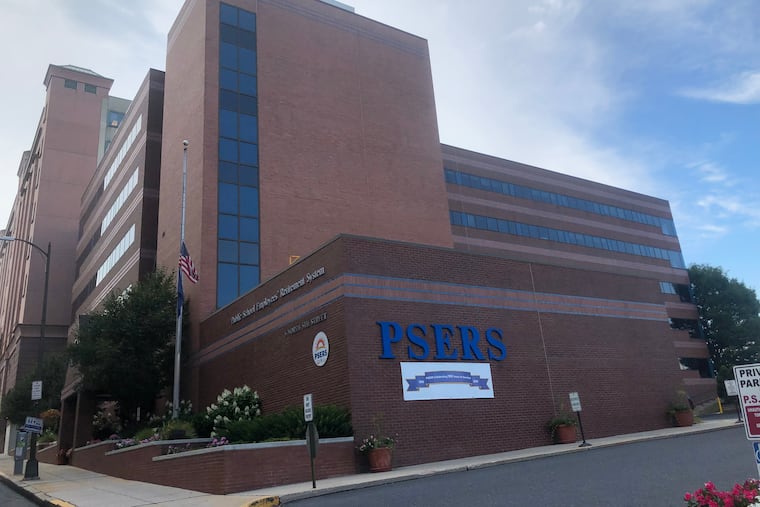FBI probes Pa. school pensions amid furor over false investment report, sources say
Also on Friday, PSERS said for the first time that it is investigating actions taken by its top staff.

The FBI is pursuing an inquiry into Pennsylvania’s largest pension fund, according to people familiar with the matter, even as the retirement plan’s board disclosed Friday that it is investigating its staff for their role in exaggerating investment results.
The scope of the FBI’s involvement could not be learned, but three sources close to the PSERS pension fund said agents had met recently with top executives seeking information on the $62 billion pension fund. The FBI declined comment.
Asked about the FBI’s involvement, PSERS did not respond directly but said Friday it would “continue to fully cooperate with … any governmental inquiries.”
Also on Friday, PSERS said for the first time that it is investigating actions taken by its top staff after it learned the report it used to review investment results from the last decade was inaccurate.
The Pennsylvania Public School Employees’ Retirement System also disclosed it is investigating an error by an unnamed outside consultant as well as the response by the consultant and its own staff once the error was discovered.
The error was incorporated into a report approved by a majority of PSERS board members in December after executive director Glen Grell, investment chief James Grossman, and chief financial officer Brian Carl assured board members it was accurate. Even with their assurances, three board members who raised questions about how it was calculated declined to approve the report.
In its statement Friday, PSERS said “at this time, the Board has taken no personnel action.”
Spokesperson Evelyn Williams also declined to comment on whether PSERS board chairman Chris Santa Maria, a Harriton High School teacher, still stands by his March 16 statement that “we do not have any information at this time that anything criminal occurred.”
On March 19 the board hired two law firms — one to investigate the error in its performance report, the other to review the impact of correcting the error on payments by taxpayers and teachers, and also any resulting impact on PSERS investments’ tax-exempt status.
“If a board or staff member has breached their fiduciary duty, they should resign immediately,” Gov. Tom Wolf’s spokesperson, Lyndsay Kensinger, said Friday.
Wolf wants his board appointees to exercise “strong oversight” over the fund’s management, “clearly warranted given this apparent error,” the governor’s office said in an earlier statement after PSERS admitted the error.
The mistake, if uncaught, could have improperly spared 100,000 teachers and other employees from a hike in pension paycheck deductions, leaving taxpayers to cover more of the rising gap between the fund’s assets and future payments to working and retired public school staff.
In its December meeting, the board acknowledged investment profits had not met the system’s own target, but found them just barely good enough under state law to avoid an increase in teachers’ deductions.
The board has met to discuss the issues in a series of meetings closed to the public and media.
PSERS must abide by a so-called risk-sharing rule that requires public school workers to pay extra when the pension fund falls short of an investment target. If the target is met, but the fund still needs more money, taxpayers alone pay more.
The target was a return of 6.36%. In December, the board endorsed a report from the plan’s experts that the fund had actually grown by 6.38% — just enough to spare teachers an increase.
State and local taxpayers are expected to pay $5 billion to keep PSERS finances on an even keel this year, slightly more than last year. School staff were to pay $1.1 billion.
Along with Grell, Carl, and trustees’ chairman Santa Maria, chief investment officer Grossman insisted at the December meeting that the performance data had been verified.
“We did our due diligence,” Grossman said. “We covered it. I’m not worried about it.”
Any bump in payments into the pension system by teachers and other education employees would only apply to staff hired after 2011 — about 100,000 of the 250,000 workers paying to support the fund. This focus on newer employees reflects legal bars on changing the state contracts with older ones.